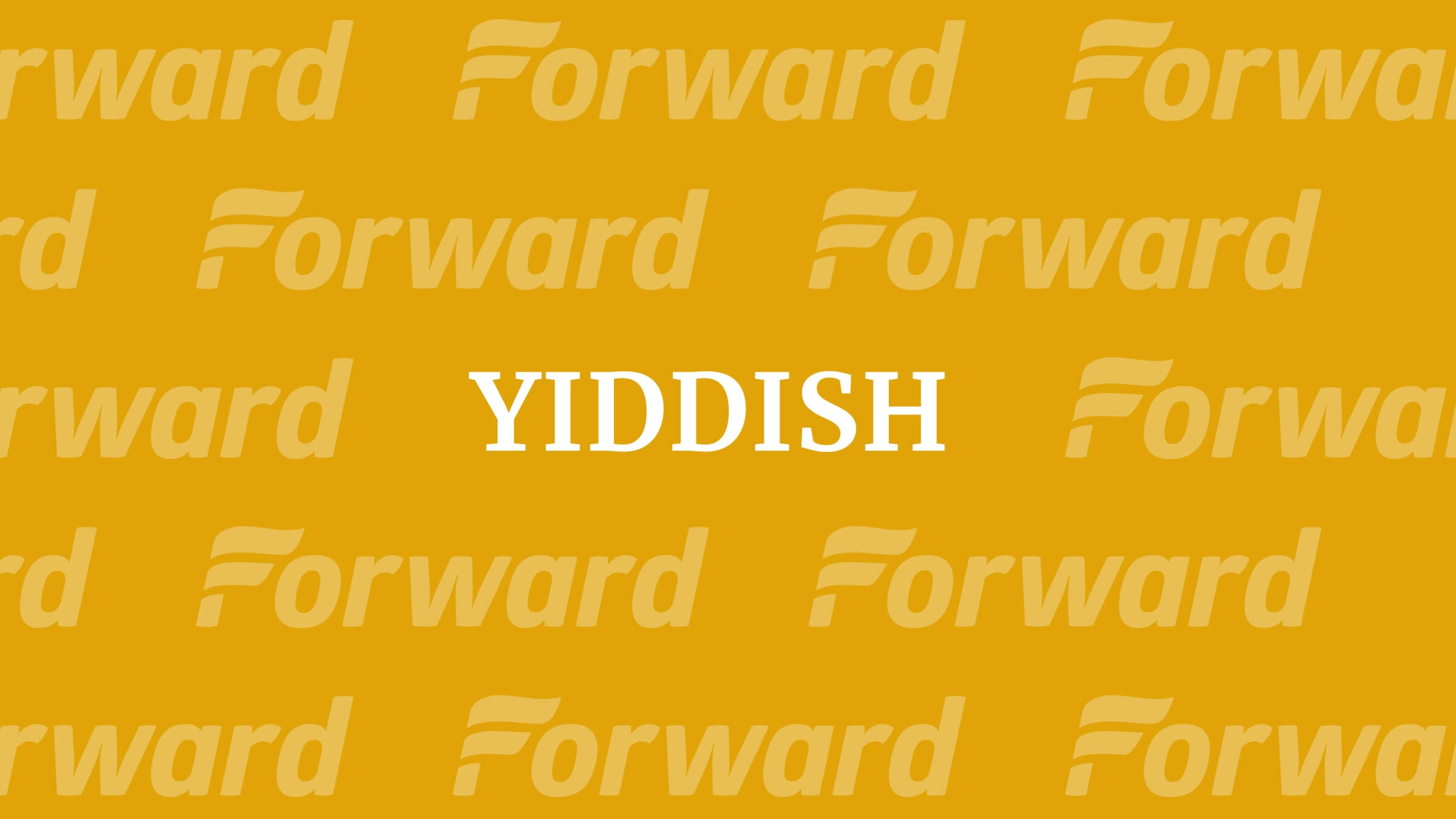Warsaw Jewish socialist martyr Artur Zygielbojm was a harsh critic of Zionism
The play ‘Amid Falling Walls’ links the Bundist with Jewish longing for Palestine. He would have balked at this interpretation

Graphic by Angelie Zaslavsky
In her November 19 review of the play Amid Falling Walls, Rukhl Schaechter describes a scene she found particularly moving. In it, an exiled Polish Jewish politician takes his own life to protest the world’s indifference to the Holocaust. The scene is followed by a character calling, “Attenzion! Attenzion!” As Schaechter writes, the actor slowly stretched out each syllable: “As he does so, we realize he’s actually pronouncing the word Zion, turning his simple command into a subliminal call to his fellow Jews to wake up to reality.”
Without historical context, there’s nothing wrong with this scene. It’s a perfect microcosm of the Holocaust’s tragedy and the hope that Zionist Jews no doubt felt at the prospect of a Jewish homeland. The issue is that the death being reenacted was that of Shmuel “Artur” Zygielbojm, a representative of the anti-Zionist General Jewish Labor Bund.
The play depicted Zygielbojm’s story as most people know it, if they know it at all. It’s a brutal condemnation of Allied indifference to the Holocaust that over time has evolved from a singular tragic incident to one fable in a greater Jewish narrative pointing east toward the Holy Land. That narrative, however, isn’t what Zygielbojm died for.
Besides his famous address to the Allies condemning their inaction, he left two other letters: one to his brother, where he laid bare the despair he felt; and one to his Bundist comrades, where even as he let his failing optimism slip through he wrote, “I see all of our loved ones in front of me and I rejoice with everyone who remains alive.” Echoing countless leftist martyrs before him, he encouraged his friends not to grieve for him but to fight for everyone who survived him.
Even before the war, Zygielbojm always fought for Polish Jewry. Born into poverty in 1895, he began working at the age of 10. At 12, he moved to Warsaw alone, in search of a job that could support his family. After World War I, he returned to his family and became an active member of the Bund.
He climbed the ranks of the party until, in 1939, he was sent to Lodz to become its leader. Soon after, the Germans invaded. He left Lodz on foot to help defend Warsaw. When the city fell, the Nazis demanded 12 hostages to maintain order. The city president proposed sending a woman named Ester Ivinska, but Zygielbojm volunteered in her stead. Later, when the Bund was ordered to provide a representative to the Judenrat, Zygielbojm volunteered, reasoning that the Nazis already knew who he was.
His time on the Judenrat was short-lived. When the Nazis ordered them to establish a Jewish ghetto, it was Zygielbojm who pushed his colleagues to refuse. He then stood before a crowd of Warsaw Jews and made his objection to the ghetto public, inspiring so much resistance that the ghetto wasn’t established for another year. It was only after this act of defiance that he went into exile.
In short, Artur Zygielbojm’s suicide wasn’t a surrender. Shortly before his death in 1943, Jan Karski visited him to deliver news of the Warsaw Ghetto. He told Karski to spare no detail of the inhuman conditions. Then, Karski told him that the ghetto representatives he’d spoken to had asked Jewish leaders in exile to go on a hunger strike until the Allies proposed a concrete plan to help the Jews.
Zygielbojm balked at this, but not out of cowardice. “You know what would happen,” he told Karski. “They would simply bring in two policemen and have me dragged away to an institution. Do you think they will let me die a slow, lingering death?” Still, he swore to Karski he’d do everything he could.
It’s telling that Zygielbojm assumed he’d be acting alone. He’d spent the last three years sounding the alarm on the Jewish plight. He was ignored in France, then the United States, then London. At times, even his fellow Jews frustrated him. About a month before his death, he wrote to his brother: “The Zionists are using the martyrdom as part of their fundraising campaign: ‘Another 100,000 Jews murdered, give more money for Palestine.’”
Perhaps Zygielbojm was being uncharitable, but his view aligned with many Bundists of his day. As one Bundist anthem sang of Zionists: “They say that they answer the prayers of our fathers … While those who are living in sorrow and hunger/ To them they are deaf as the Wall.” The Bund, like many socialist organizations, was internationalist. It was only after the Holocaust that Zionism became more widely popular among Jews. As Israel kills 10 Palestinians for every Jew Hamas killed on 10/7, the Bund’s critiques are worth considering.
Likewise, Artur Zygielbojm deserves to be remembered in his full context. He not only sacrificed his life for the Jews of Poland, but left instructions that his body should be cremated in solidarity with them. He died dreaming of a better world for Jew and gentile alike, and Zionist or not, we can honor him by embracing dissent in our communities and working toward that dream.





















